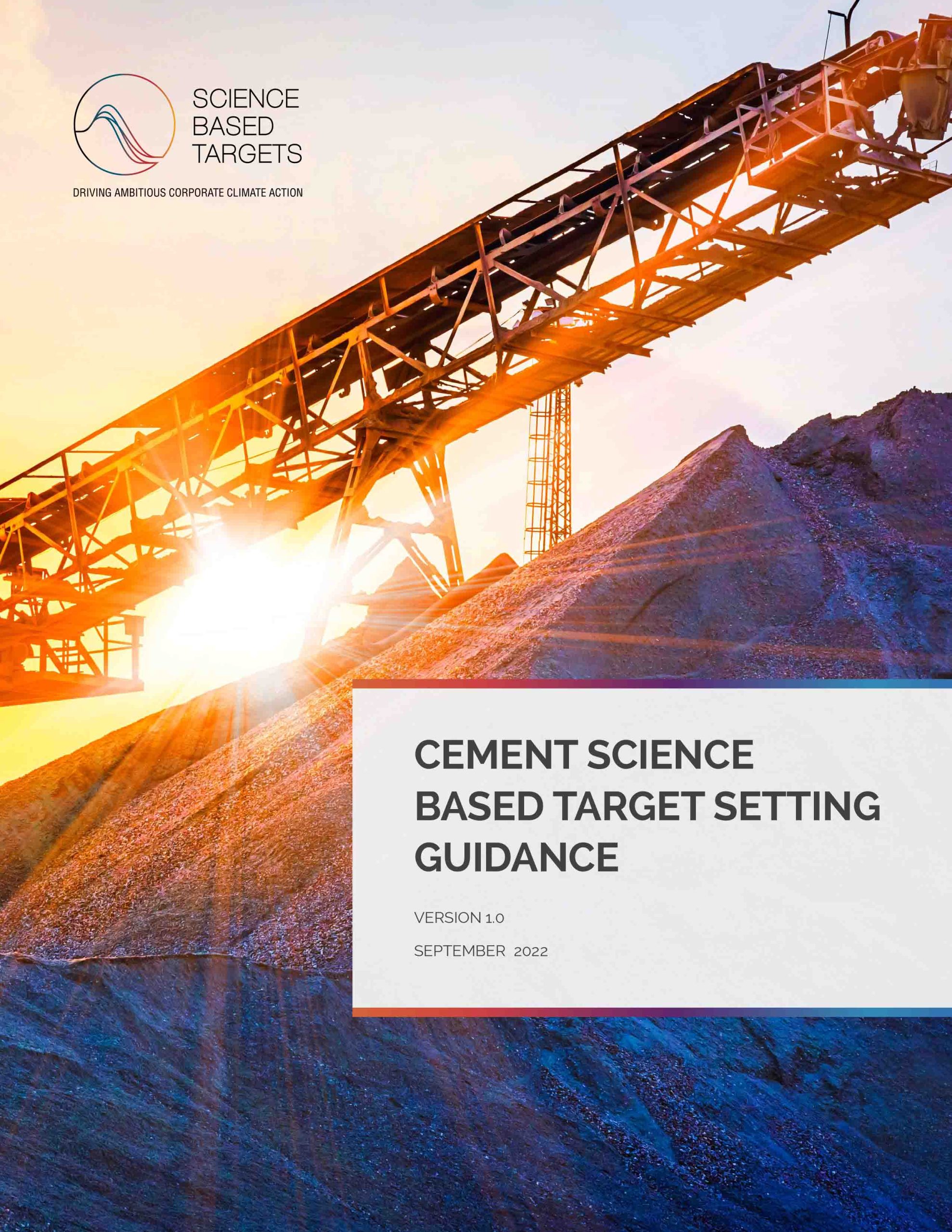
The parent company of Heidelberg Materials is the latest multinational producer in its sector to validate 2030 carbon dioxide emissions reduction target according to the Science Based Targets initiative’s (SBTi) 1.5°C framework. Across U.S., Canadian and overseas operations, HeidelbergCement AG commits to reduce gross (GHG Protocol-defined) Scope 1 and 2 emissions by a combined 26.7 percent per ton of cementitious material output from a 2020 baseline, while adding a Scope 3 emissions reduction target of 25 percent. The commitments align with a previously announced goal of lowering specific net CO2 emissions to 400 kg per ton of cementitious material output by 2030—47 percent below 1990 levels.
“The SBTi validation shows that our sustainability agenda not only includes the most ambitious reduction target in the cement industry, but also a realistic, measurable plan in line with the 1.5°C scenario,” adds Heidelberg Materials Chief Sustainability Officer Dr. Nicola Kimm. “We follow a clear, science-based approach, reducing our carbon footprint through the levers of product and process innovation and industrial-scale carbon capture, utilization and storage. By closing the carbon and material loops, we will lead the sustainable transformation of our sector.”
A partnership of the CDP (formerly Carbon Disclosure Project), United Nations Global Compact, World Resources Institute and the World Wide Fund for Nature, SBTi assesses and validates corporate emission reduction targets against the latest climate science. Released in 2022, the SBTi Cement Guidance is the first framework for sector operators to set near- and long-term CO2 emissions thresholds abiding the Paris Agreement’s goal to limit global temperature increase to 1.5°C above pre-industrial levels.
GCC STRATEGY
GCC S.A.B. de C.V. has recently cited SBTi validation for its greenhouse gas emissions target, drawn with an eye to keeping global temperature increases below 2°C this century. The GCC of America parent aims for respective 30.7 percent and 57 percent reductions of Scope 1 and 2 emissions per ton of cementitious material output by 2030, compared to a 2015 baseline, plus a 37.5 percent lowering of absolute Scope 3 GHG emissions from use of sold products within the same timeframe. Metrics in the SBTi validation match the sustainability performance target of a $500 million Sustainability-Linked Bond that GCC issued in January 2022. An independent reviewer will verify the target annually, with performance results posted at www.gcc.com.
“A laser-focus on our climate change strategy and emphasis on reducing carbon dioxide emissions is a testament to our commitment to creating a sustainable future,” notes GCC Vice President of Sustainability and Environment Gina Lotito. “While we celebrate our achievements, we acknowledge that there is still much work to be done.”
HOLCIM LEADING THE WAY
The Heidelberg Materials and GCC validation announcements follow similar action by Holcim Ltd., which late last year upgraded emissions reduction pursuits consistent with the SBTi 1.5°C framework. In new 2030 targets, Holcim raises the stakes to reduce Scope 1 and 2 emissions per ton of cementitious material output by 25 percent from a 2018 baseline. Hence, the producer commits to respectively reduce gross Scope 1 and Scope 2 GHG emissions by 22.4 percent and 65 percent per ton of cementitious material shipped over the next seven years. For other indirect emissions under Scope 3, Holcim commits to reducing CO2 per ton of clinker and cement purchased from third parties by 25.1 percent from a 2020 baseline.
“We are committed to decarbonizing building for a net-zero future,” affirmed Holcim CEO Jan Jenisch. “When I see the thorough plans we are deploying across our business, I am confident that we will decarbonize building at scale.”
“The ambition of Holcim’s targets is aligned with the need for the global economy to rapidly cut emissions,” added SBTi CEO Luiz Amaral. “This company is setting an example for the rest of its industry, and I urge others in its sector to set their own targets too.”